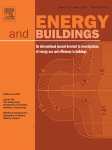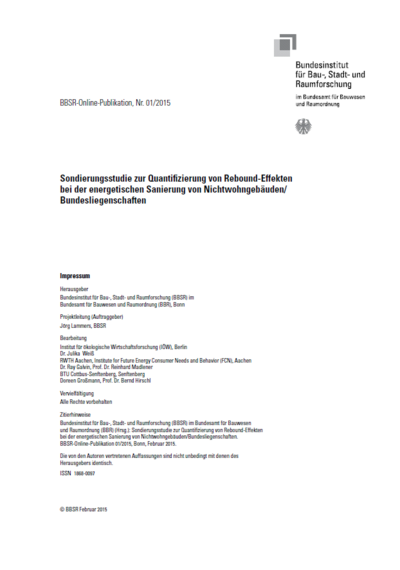Retrofit Plan for Federal Buildings: A Special Study to Quantify Rebound Effects After Thermal Retrofits of Non-Residential Buildings/Federal Properties
The German federal government is aiming at reducing heating energy consumption in its properties by 20% by the year 2020, in conformity with commitments by the wider public service sector, and for this it has developed a building retrofit plan. Current practice tends to over-estimate savings potential through retrofits, as it bases this on pre-and post-retrofit calculated consumption rather than actual consumption. In this respect, as is well-known, the ‘rebound effect’ means that the level of predicted savings is seldom achieved in practice. In order to estimate savings potentials more accurately, there needs to be an investigation and comparison of actual and calculated energy consumption.
This project, commissioned by the Federal Institute for Research on Building, Urban Affairs and Spatial Development (BBSR), explores the research questions: what levels of rebound effects can be expected after retrofits of office and administration buildings; what are their causes; and how can these be reduced. To answer these questions, a methodology has been developed to determine the magnitude of rebound effects in non-residential buildings. This is being tested in case studies of three to five buildings. Alongside estimates of rebound effects from the buildings’ theoretical and actual consumption and data, interviews will be conducted with users of the buildings. Finally, the technical and interview data will be analysed and recommendations made, both for reducing rebound effects and for refining the methodology.





